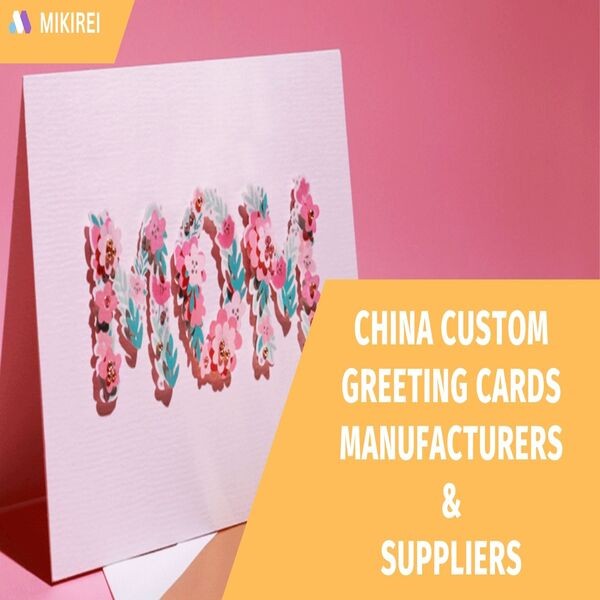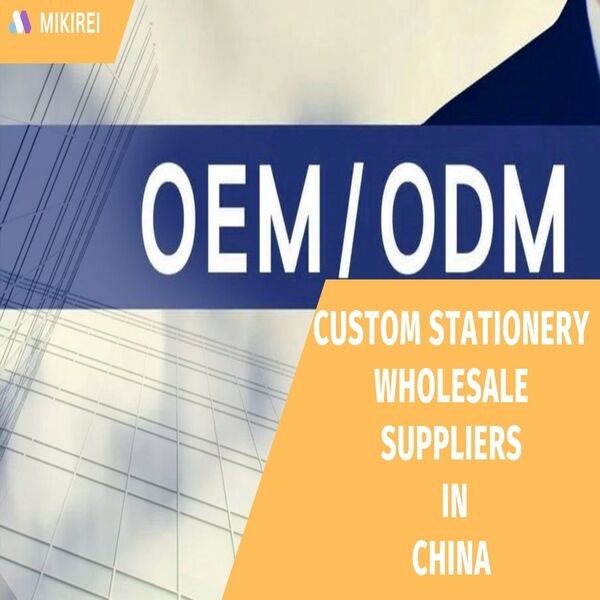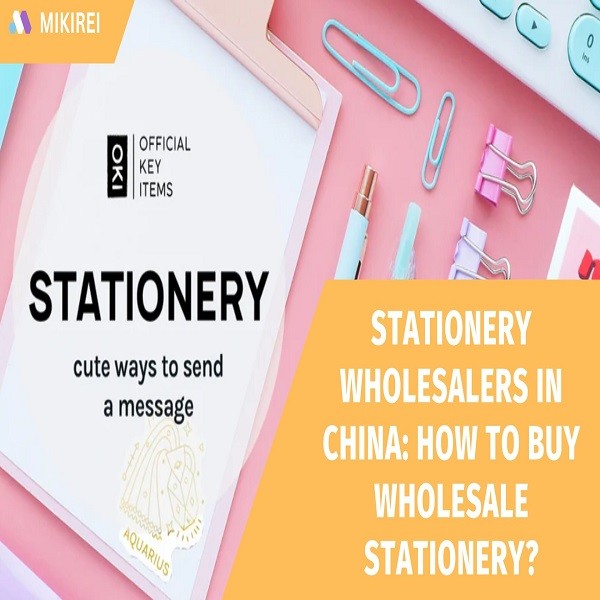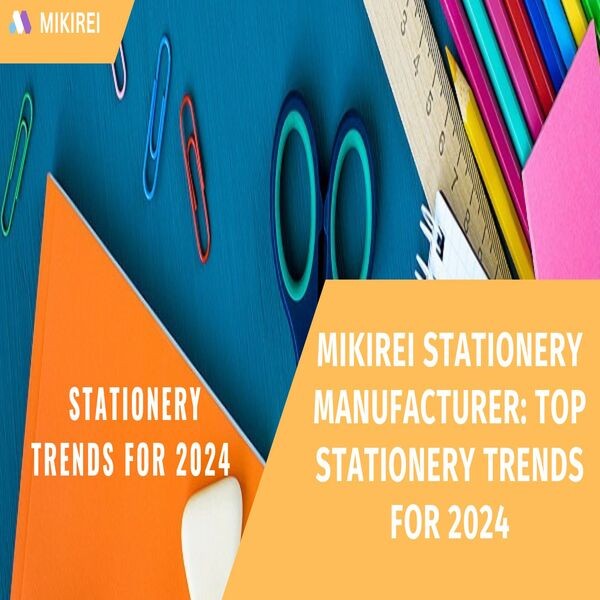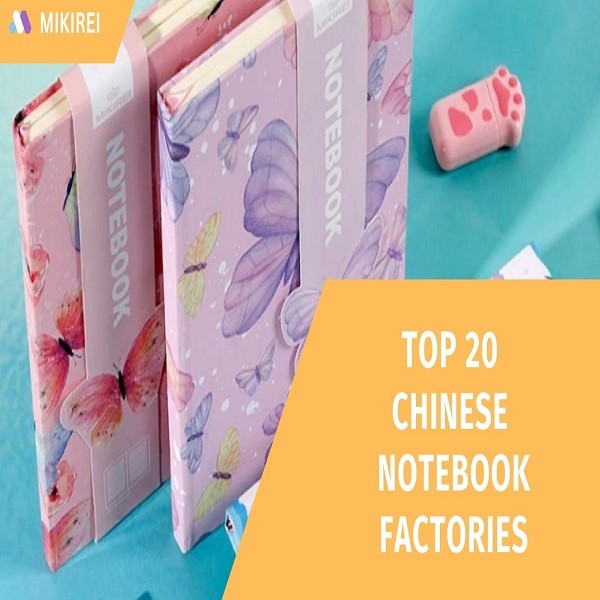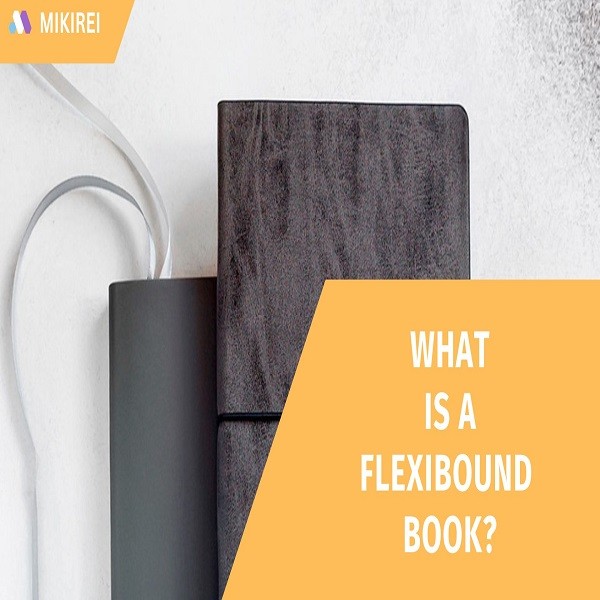Cheap Stationery Supplies from China: A Cost-Effective Solution
In today's competitive business environment, entrepreneurs and office managers are continually seeking ways to reduce costs without compromising on quality.
One practical and increasingly popular solution is sourcing stationery supplies from China.
This article will guide you through the process of procuring cheap stationery supplies from China, highlighting the benefits, considerations, best practices, and potential challenges.
Table of content
- The Advantages of Sourcing Stationery Supplies from China
- Top Considerations for Buying Cheap Stationery Supplies from China
- The Best Practices for a Smooth Procurement Process
- Risks and Challenges
-
FAQs (Frequently Asked Questions) About Stationery Supplies from China
- 1. Is it safe to source stationery supplies from China?
- 2. How can I ensure the quality of stationery products from Chinese suppliers?
- 3. What is the typical lead time for shipping stationery supplies from China?
- 4. Are there any restrictions or regulations when importing stationery products from China?
- 5. Can small businesses benefit from sourcing stationery supplies from China?
The Advantages of Sourcing Stationery Supplies from China

When it comes to procuring stationery supplies for your business or personal needs, China emerges as an appealing destination for a variety of reasons. Here are some key advantages to consider:
1. Cost-Effective Solutions:
One of the primary reasons businesses and individuals turn to China for stationery supplies is the cost-effectiveness. Chinese manufacturing capabilities are renowned for their efficiency and affordability.
By sourcing your stationery products from Chinese manufacturers, you can access items at significantly lower prices compared to many other suppliers.
These cost savings can have a substantial and positive impact on your budget. Whether you're a small business trying to keep overheads low or an individual looking for affordable stationery options, sourcing from China provides a clear advantage.
It allows you to stretch your budget further without compromising on quality.
2. Wide Variety of Products:
Chinese manufacturers offer a vast and diverse array of stationery products. This extensive range includes everything from pens, notebooks, paper, and basic office essentials to more specialized items like customized promotional materials.
This wide variety means that you can fulfill all your stationery needs through a single source - a convenient and efficient way to manage your procurement. You can explore different styles, designs, and customization options, ensuring that your stationery aligns with your specific requirements and preferences.
In summary, sourcing stationery supplies from China provides a two-fold advantage. You gain access to cost-effective solutions that can significantly reduce your expenses, all while enjoying a wide array of products that cater to a multitude of preferences.
This combination of affordability and variety makes China a popular choice for those in need of reliable and budget-friendly stationery supplies.
Top Considerations for Buying Cheap Stationery Supplies from China

Sourcing stationery supplies from China can be a cost-effective and convenient choice, but it's essential to approach the process with careful consideration.
Here are the top considerations to keep in mind:
1. Quality Assurance:
While cost savings are a significant attraction, it's crucial to ensure that the stationery supplies meet your quality standards. To address this, consider the following:
Product Samples: Before making bulk orders, request samples from potential suppliers. This allows you to evaluate the quality, design, and functionality of the products.
Third-Party Inspections: Depending on your specific needs and the scale of your procurement, consider hiring third-party inspection services to ensure the quality of the products.
Quality assurance is essential to avoid potential issues such as subpar products that could impact your business's reputation or personal satisfaction.
2. Supplier Research:
Finding the right supplier is paramount. Conduct thorough research and due diligence when selecting a Chinese stationery supplier. Here's what to consider:
Background Check: Research the background of potential suppliers. Look for their reputation, track record, and years in the business.
Customer Reviews: Read reviews and testimonials from other businesses or individuals who have experience sourcing stationery supplies from these suppliers. This can provide valuable insights into their reliability.
Recommendations: Seek recommendations from others in your industry or network who have engaged with Chinese suppliers. Personal recommendations can be particularly helpful.
3. Shipping and Logistics:
Understanding the shipping and logistics aspect is crucial when importing goods from China. Consider the following:
Shipping Costs: Calculate shipping costs and compare different shipping methods. Ensure that shipping expenses fit within your budget.
Lead Times: Understand the lead times for production and shipping. Knowing how long it takes for your supplies to reach you is essential for planning.
Customs Requirements: Familiarize yourself with the customs and import regulations of your country. Ensure that you have all the necessary documentation and adhere to any specific requirements to avoid delays and unexpected costs.
In conclusion, while buying cheap stationery supplies from China can be advantageous, it's essential to prioritize quality, conduct thorough supplier research, and have a good grasp of shipping and logistics.
By addressing these considerations, you can make informed decisions and navigate the procurement process more effectively, ensuring that you receive high-quality stationery supplies at affordable prices.
The Best Practices for a Smooth Procurement Process

When procuring stationery supplies from China, it's important to implement best practices to ensure a seamless and efficient process.
Here are some key strategies to consider:
1. Effective Communication with Suppliers:
Clear and open communication with your Chinese suppliers is the cornerstone of a successful procurement process. Here's how to achieve this:
Specify Your Requirements: Clearly outline your product requirements, including specifications, quantities, and quality standards. Provide detailed product descriptions and, if necessary, technical drawings.
Negotiate Terms: Engage in transparent negotiations to establish pricing, payment terms, delivery schedules, and quality control measures. Ensure that both parties are in agreement.
Maintain Regular Contact: Maintain an ongoing dialogue with your suppliers. Regular updates, questions, and clarifications can help prevent misunderstandings and delays.
Language Assistance: If language barriers are a concern, consider hiring an interpreter or utilizing translation services to facilitate smooth communication.
2. Bulk Orders and MOQs (Minimum Order Quantities):
Many Chinese suppliers have Minimum Order Quantities (MOQs). To make the most of your procurement process, consider the following:
Plan Your Order Size: Be strategic in planning your order size to meet or exceed MOQs. Ordering in larger quantities can often result in lower unit costs.
Inventory Management: Ensure that your procurement aligns with your inventory needs and demand projections. Avoid over-ordering to prevent excessive stock.
Cost-Benefit Analysis: Weigh the potential cost savings against storage costs and cash flow considerations to make informed decisions.
By maintaining effective communication with suppliers and understanding the implications of MOQs, you can streamline the procurement process and maximize cost-efficiency.
In conclusion, adhering to best practices in communication and order planning is crucial for a smooth procurement process when sourcing stationery supplies from China.
By specifying your requirements, negotiating terms, and staying in regular contact with suppliers, and by strategically managing bulk orders and MOQs, you can minimize misunderstandings and logistical challenges, ensuring a more successful and cost-effective procurement experience.
Risks and Challenges

While sourcing stationery supplies from China offers various advantages, it's essential to be aware of the potential risks and challenges that can arise in the procurement process.
Here are some key points to consider:
1. Quality Control Issues:
Ensuring the quality of stationery supplies is a common challenge when dealing with international suppliers. Here's how to address this issue:
Regular Quality Checks: Implement a robust quality control system. Conduct regular inspections and quality checks of the products to ensure they meet your specified standards.
Communicate Expectations: Clearly communicate your quality expectations to your Chinese suppliers. Provide detailed product specifications and sample references.
Develop a Contingency Plan: In case of subpar products, have a contingency plan for returns, replacements, or refunds. Understanding your rights and the supplier's policies is crucial.
2. Language and Cultural Barriers:
Dealing with language and cultural differences can present communication challenges. To overcome these barriers:
Hire Interpreters or Agents: Consider hiring interpreters or agents who are fluent in both languages and well-versed in the business culture of both your country and China.
Use Translation Services: Utilize professional translation services for written communication to minimize misunderstandings.
Cultural Sensitivity: Be aware of cultural nuances, including etiquette, holidays, and business customs, to foster effective and respectful communication.
3. Customs and Import Regulations:
Navigating customs and import regulations is often complex and can result in unforeseen delays and costs. Here's how to address this challenge:
Research Requirements: Thoroughly research the customs and import regulations of your country. Understand the specific documentation and compliance requirements.
Engage with Customs Experts: Consider consulting with customs experts or hiring customs brokers who can guide you through the process.
Prepare Accurate Documentation: Ensure that all documentation, including invoices, packing lists, and certificates of origin, is accurate and complete.
By addressing these risks and challenges proactively, you can mitigate potential issues and minimize disruptions in the procurement process.
Quality control, overcoming language and cultural barriers, and understanding customs and import regulations are essential components of a successful sourcing strategy from China.
FAQs (Frequently Asked Questions) About Stationery Supplies from China

1. Is it safe to source stationery supplies from China?
Yes, it is generally safe to source stationery supplies from China.
However, as with any international procurement, it's essential to conduct due diligence when selecting suppliers, maintain clear communication, and ensure proper quality control measures are in place to guarantee the safety and quality of the products.
2. How can I ensure the quality of stationery products from Chinese suppliers?
Ensuring product quality involves several steps:
Specify your quality requirements in detail.
Request product samples before placing bulk orders.
Consider third-party inspections or quality control services.
Maintain open and effective communication with suppliers to address any quality concerns promptly.
3. What is the typical lead time for shipping stationery supplies from China?
The lead time for shipping stationery supplies from China can vary depending on factors such as the type of product, shipping method, and destination.
Generally, it can range from a few weeks to a couple of months. It's crucial to confirm lead times with your chosen supplier and factor them into your procurement planning.
4. Are there any restrictions or regulations when importing stationery products from China?
Yes, there may be restrictions and regulations depending on your country. It's essential to research and understand the specific customs and import regulations governing stationery products in your region.
This might include compliance with safety standards, labeling requirements, and import duties.
5. Can small businesses benefit from sourcing stationery supplies from China?
Yes, small businesses can benefit from sourcing stationery supplies from China. It can be a cost-effective solution that helps reduce expenses without sacrificing product quality.
However, small businesses should carefully consider their procurement needs, maintain quality control measures, and plan orders strategically to maximize the benefits of sourcing from China.
Conclusion
Sourcing cheap stationery supplies from China is a viable option for businesses looking to cut costs without compromising quality.
However, it's essential to conduct thorough research, maintain clear communication with suppliers, and address potential challenges to ensure a smooth procurement process.

